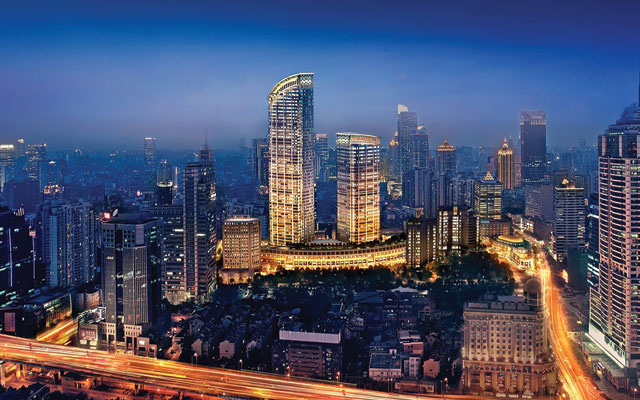Shanghai heats up with the arrival of more luxury brands, but what about hotel rates?
Hotel inventory in Shanghai is expanding and the opening of at least 10 international high-end brands in the business and cultural hub in the past year is raising the city’s luxe appeal.

Among the additions are the 436-room St Regis Shanghai Jingan, which opened in May 2017; the 374-room W Shanghai – The Bund, which opened in June 2017; and the 55 all-villa Capella Shanghai, Jian Ye Li – one of the last remaining clusters of shikumen architecture dating back to the 1930s – which opened in September 2017.
At press time, other notable openings this year include the Bellagio by MGM Shanghai and boutique brands, with between 100 and 150 rooms, like Bulgari, Edition, Middle House and Sukothai.
Yvonne Peng, director of sales and marketing, said all 55 of the Cappella’s one-, two- and three-bedroom villas were booked in February by a China-based finance company for a one-night stay that was combined with an off-site dinner as its annual company event.
Peng also noted the hotel is seeing demand for events that mix luxury lifestyle and business.
Meanwhile, the 28ha Shanghai Hongqiao Economic and Technological Development Zone, being developed for commerce and MICE, will house 100 new international chain and domestic-branded hotels in the next three to five years.
According to a city tourism official, there are now 51 hotels in the area with 14 business and high-end hotels providing some 4,400 rooms, and 32 in the economy category providing another 4,000 rooms.
Violet Wang, destination manager, Pacific World in Shanghai, commented: “Hotel demand in Shanghai is increasing but so is supply, and that is keeping hotel rates stable.”
Observing some increase in rates, Julien Delerue, general manager of 1000meetings, a Shanghai-based event technology platform, said there was “10 per cent growth for business group rates on room accommodation year-on-year in 2017 versus 2016 for five-star international hotels – RMB1,045 (US$166) in 2017 versus RMB945 in 2016”.
It was “seven per cent for four-star international hotels – RMB645 in 2017 versus RMB600 in 2016”, he added, noting that similar trends are expected in 2018.
As China’s financial hub, domestic demand for Shanghai is a big factor. Chris Tsoi, general manager, St Regis Shanghai Jingan, said: “The hotel business in China has evolved… the domestic market in China is now key.”
Cheryl Yue, executive assistant manager – sales and marketing, W Shanghai-The Bund, agreed. “China is now like the US and the domestic market is very important. For us between 20 and 30 per cent of the business is domestic, and China, the US and Hong Kong make up our top three markets,” she commented.




















